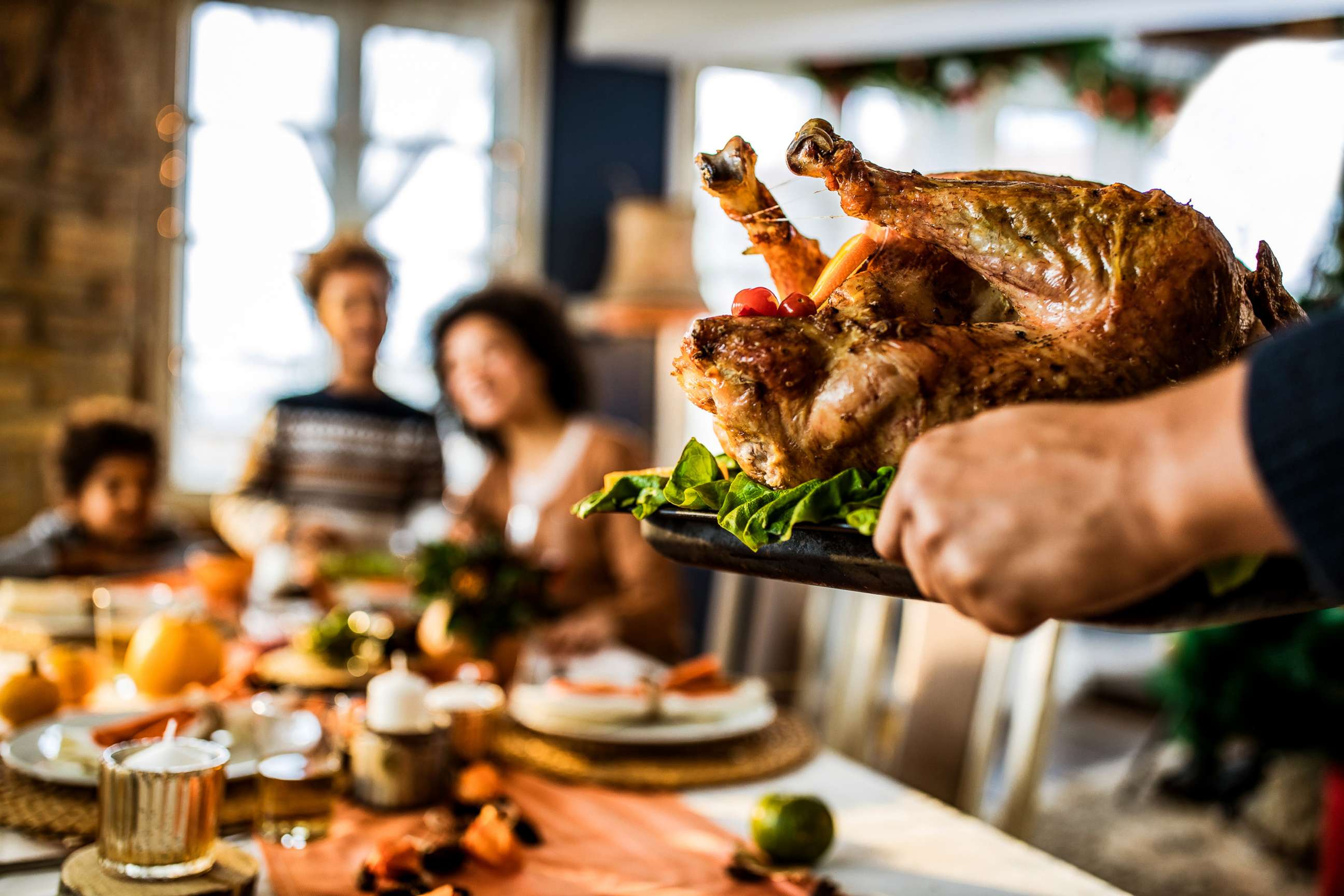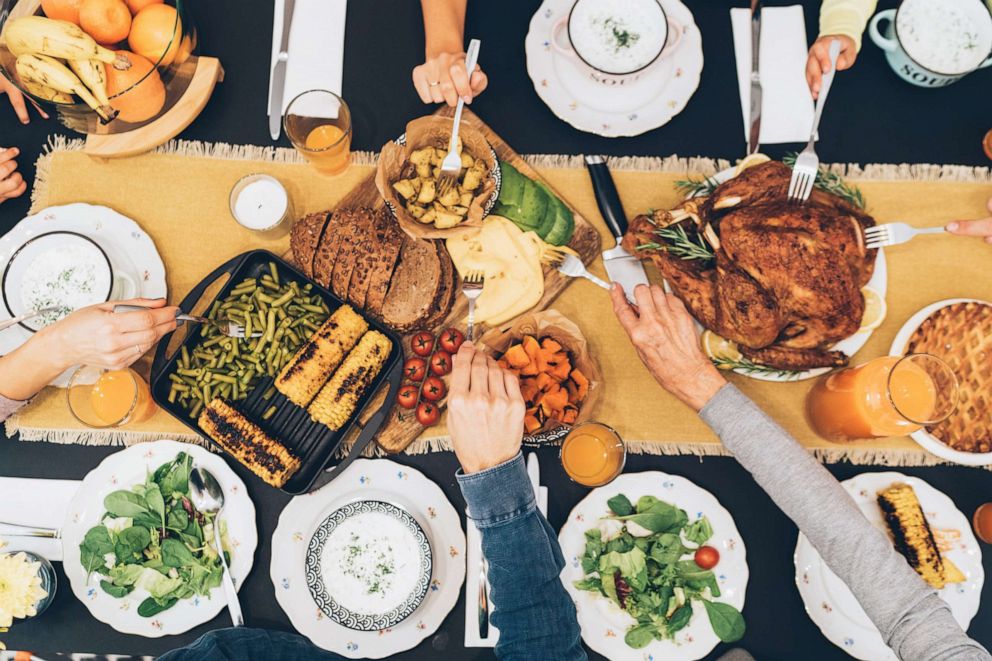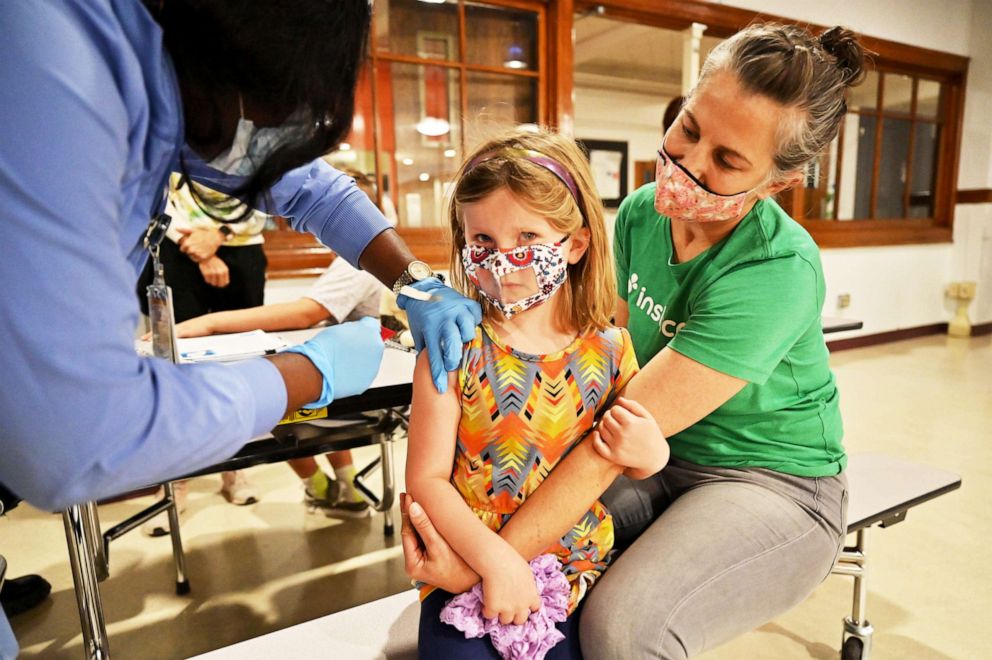How to ensure your Thanksgiving doesn't turn into a superspreader event
Limiting exposure, testing, staying home when sick and ventilation are keys.
With a winter virus surge lurking and no readily available vaccines, Thanksgiving 2020 was very different for most families. This year, expectations are much higher.
But even this year, a recent uptick in COVID-19 cases means public health experts are still urging caution.

Beyond vaccination, layering different protective measures is the best overall strategy, experts told ABC News. Dr. Anne Liu, an infectious disease and allergy specialist at Stanford University, advises people "to not rely just on vaccination, but to also be thoughtful about when to implement masking and rapid testing."
That includes limiting exposure in the days prior to Thanksgiving, rapid testing immediately prior to family gatherings, ensuring communal spaces get plenty of fresh air and staying home if sick.
Dr. Leana Wen, a former Baltimore health commissioner, said she's asking family members to limit activities that could potentially expose them to COVID-19 in the days leading up to Thanksgiving.
"We are asking everybody to reduce their overall risk for the three- to five-day period before, and we're all taking a rapid test the morning of," she added.

Another option is testing.
"Testing ahead of time does make a low-risk situation with all vaccinated people even lower risk," said Dr. Paul Sax, clinical director of infectious diseases at Brigham and Women's Hospital. "I especially recommend it if someone at the gathering is older or potentially immunocompromised."
There are multiple types of COVID-19 tests, including PCR tests, rapid tests and antibody tests. Infectious disease experts agreed that an antibody test, which looks for traces of a prior infection or prior vaccination in your blood, isn't going to be a helpful way to protect your family over the holidays. Instead, opt for a PCR test, if you have time to wait for the results, or, a rapid test -- less accurate, but faster.
"PCR test is obviously the best," said Dr. Marc Siegel, director of infectious diseases at George Washington University. Unfortunately, during times of high demand these tests can be hard to take or results are delayed. Sax suggests that if a person is asymptomatic, doing a rapid antigen test the day before and the day of the gathering would be reasonable in lieu of a PCR test.

Once gathered, experts also suggest paying attention to ventilation. Weather permitting, have parts of gatherings outdoors helps decrease risk. It's admittedly easier in some states.
"We're going to actually have it outside -- it's supposed to be 65 and sunny on Thanksgiving day," said Dr. George Rutherford, a doctor and infectious disease researcher at the University of California, San Francisco. "Plus, we can get a lot more people at the table because we can string tables together."
But there are still options for those in colder climates.
"Even in a cold environment, it's possible to open up a window," said Siegel. "You might be losing some of the heat, but at least opening up a window on each side of the room to allow some room air to circulate." Using air filters is another consideration, Sax added.
If possible, those with prior vaccinations should get their boosters before the holiday, experts said.
Health professionals still agree that getting vaccinated is the single best a person can do to protect themselves and their loved ones -- especially unvaccinated children.
"Vaccines are only as efficacious as the number of people that get them. So a good time to remind people to get their COVID vaccines if they're still holding out," said Dr. Molly Fleece, an infectious disease doctor at the University of Alabama in Birmingham. "What we do not want to see this year is a so-called twin-demic, where we have peaks of influenza as well as COVID during our holiday season."
Ultimately, between rapid testing, better knowledge of COVID-19 transmission and the mass availability of vaccines, this year's holiday season has the potential to be more joyous than last year's.
Lauren Joseph, a student at Stanford Medical School, and Jacob Warner, an internal medicine resident at Dartmouth-Hitchcock Medical Center, are contributors to the ABC News Medical Unit.



